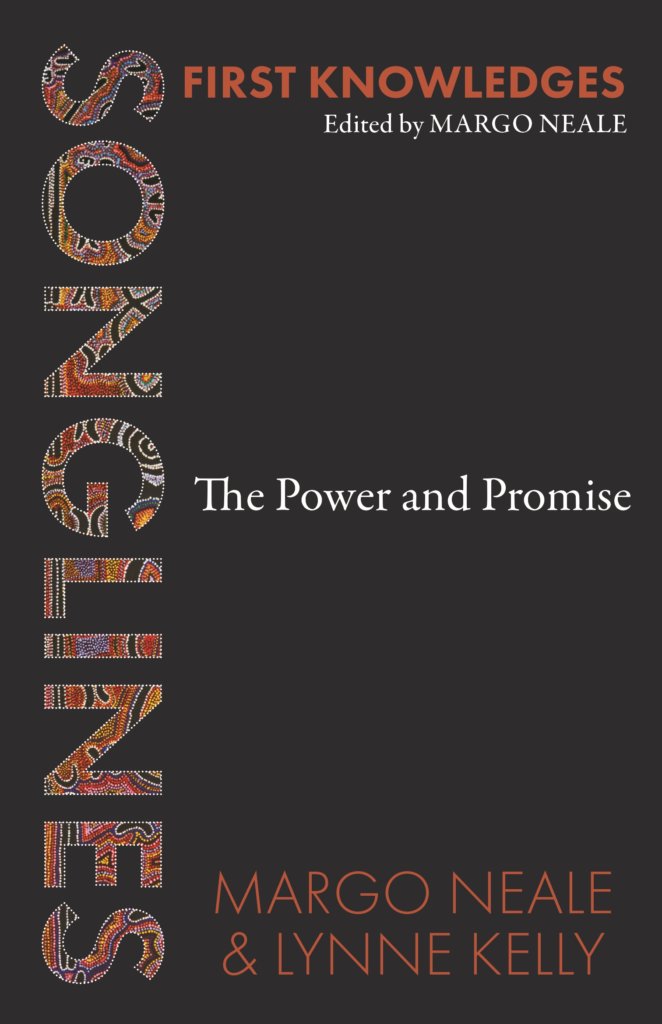
Songlines is the first in the First Knowledges series of six books that will give an in-depth understanding of Indigenous expertise in six areas. The second and third books on Design and Country will be published in 2021.

LYNNE KELLY
If Indigenous art forms such as song, story, dance and ceremony are so similar and so effective in cultures around the world, why aren’t we using them in contemporary Western education? Why can’t we all benefit from Indigenous techniques for learning and storing knowledge?
The answer is simple: we can. All Indigenous knowledge techniques reflect the way the human brain stores information – the way your brain stores information. So why not use these knowledge methods alongside the techniques you already have? You don’t have to give up writing or technology. You don’t have to give up anything to add to your toolbox of memory aids and learn from the knowledge technologies that Indigenous cultures have been perfecting for millennia.
It’s time to go beyond learning about Indigenous cultures and start learning from them. If you start incorporating some of the ideas in this book into your personal knowledge system, you will experience the power of Songlines.
WITHOUT MEMORY, THERE IS NO KNOWLEDGE
Almost all human knowledge is now available on the internet – you just have to search for it. So why bother memorising anything? This worrying question is asked far too often.
Firstly, you can’t look up something if you don’t know it exists.
Secondly, as you burrow down to specific information, you can’t connect it to the bigger picture. Creativity – the way to see things in new ways and construct new ideas – depends on being able to see and understand from different directions. If you don’t have various forms of knowledge in memory, how can you identify new patterns and ideas? All you are capable of doing is regurgitating the information that has already been neatly written and indexed for you.
Thirdly, how often do the knowledge keepers in every society have to make decisions based on what they know, without the time to go and look it up? How would you feel about a doctor who had to look up every symptom you mentioned? Or a policeman who had no idea what the law stated? Or a singer who knew none of the lyrics without an autocue?
Fourthly, if you want to go to the higher levels of thinking that we educators talk about endlessly in education – analyse and synthesise, hypothesise and theorise – then you have to analyse, synthesise, hypothesise or theorise about something. Otherwise, your new thinking is meaningless. By grounding your knowledge, literally, in Songlines, you have a firm knowledge base on which to build ever more complex layers of understanding.
And finally, your brain is a muscle. Like every other muscle in your body, it will slowly atrophy if you don’t use it. Looking up information and regurgitating it does not exercise your brain at all.
All knowledge is based on memory, and all memory is prompted by cues. One of the great gifts on offer to us from those who understand Songlines is how to set up those cues and push our memory just that much further to a capacity we have never experienced before.
MARGO NEALE
Like the Songlines that never end, the promise of this book is to open you up to a new way of understanding and a new way of knowing and being Australian on this continent. As an Australian, you too share a kinship with the First Peoples. We are all beneficiaries of the deep history of this continent and its long human occupancy stretching back thousands of generations. Immerse yourself in this legacy. It is a shared history in a shared country.
Elders from the Songlines exhibition who are custodians of the Seven Sisters Songline are very clear about why all Australians need to know about the Songlines. As they say, if you want to share this country with us then you need to know your stories beyond the last couple of hundred years. If you want to truly belong to this country, as Australians, you have to know your story about this place, this continent and its creation: ‘We are here to teach you your stories, not just to share ours. Without the deep stories you can’t take root, you will only ever be a transplant.’
The elders are not talking about sharing their stories; they are talking about telling you your stories.
Understanding how the Songlines work as a framework for relating people to each other and to place will give you the key to belonging. Learning how to integrate the dual knowledge systems from the first and second Australians will give you access to a third archive and with it, power over knowledge.
Songlines divulge powerful lessons about what it means to be human and to live on this earth. They offer us the promise of connectivity to each other and our planet in a fragmenting world.

This is an edited extract from Songlines: The Power and Promise by Margo Neale & Lynne Kelly, available now. Series editor Margo Neale and cover design by Nada Backovic. Ebook also available.
AU$19.99
Posted on November 11, 2020